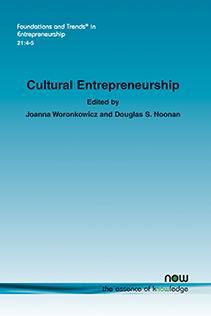The Labor Market Behavior of Cultural Entrepreneurs
By Joanna Woronkowicz, Indiana University, Bloomington, USA, jworonko@iu.edu
Abstract
This work examines the labor market behavior of cultural entrepreneurs, with a particular focus on artists as representative “modal” workers within this group. Using labor market data from the United States, it highlights the distinctive challenges faced by artists, including precarious gig work, freelancing, and temporary contracts. These conditions often require artists to balance creative passions with economic necessity, navigating between non-arts jobs for financial stability and artistic endeavors for fulfillment. The work also delves into the role of higher education, exploring its costs and benefits for artists, who often achieve modest economic returns despite high levels of educational attainment.
Further, it discusses the prevalence of non-standard employment among artists, emphasizing their entrepreneurial strategies, such as hybrid work models and self-employment, which provide flexibility and foster innovation. By synthesizing insights from labor market trends, the work underscores the unique dynamics shaping the careers of cultural entrepreneurs, offering a foundation for understanding their broader societal and economic contributions.
Cultural Entrepreneurship
This volume explores the concept of Cultural Entrepreneurship, illustrating how creativity, culture, and business come together in innovative ways. Starting with a working definition -- “entrepreneurship in or of culture, including entrepreneurship in the cultural industries and entrepreneurship in the cultural arena of artistic and cultural values” – the volume examines key themes in current research. These include balancing artistic creativity with economic viability, navigating individual agency versus structural constraints in creative careers, and adapting to new business models from traditional arts organizations to emerging digital platforms. Highlighting an interdisciplinary perspective, the volume considers the economic, sociological, and cultural forces shaping entrepreneurial activities in creative realms. It provides both theoretical frameworks and practical insights, presenting cultural entrepreneurship as a dynamic field that combines artistic innovation with economic strategies.

Companion
Foundations and Trends® in Entrepreneurship, Volume 21, Issue 4-5 Special Issue: Cultural Entrepreneurship
See the other articles that are also part of this special issue.